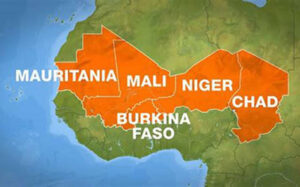The military-led governments of Mali, Burkina Faso, and Niger have announced the introduction of a common travel passport, marking a significant step in their plans to exit the Economic Community of West African States (ECOWAS). The new passports, issued under the Confederation of Sahel States (AES), will officially come into circulation on January 29, the day their withdrawal from ECOWAS becomes effective.
The AES, formed in 2023 following a series of military takeovers in the three nations between 2020 and 2023, represents a unified front in their shared struggles. These countries, grappling with years of jihadist violence, have accused ECOWAS of failing to provide adequate support and being overly influenced by France, the region’s former colonial power. Their decision to leave the bloc was first announced on January 28, 2024, but ECOWAS regulations required a one-year notice before the withdrawal could take full effect.
Also, read: Kenya Eases Travel Requirements for Nearly All African Visitors
General Assimi Goita, Mali’s junta leader and the current head of the AES, confirmed the development in a statement broadcast on Malian state television. “AES passports will be put into circulation from January 29,” he declared, adding that existing ECOWAS passports will remain valid until they expire.
In addition to introducing a shared travel document, the three nations have pledged to create a 5,000-member joint military unit aimed at combating the persistent jihadist insurgency destabilizing the region. This marks a shift towards deeper cooperation among the Sahel nations, which have also severed political and military ties with France, seeking support instead from Russia and other international partners.
The AES leadership assured citizens holding ECOWAS passports that they could exchange them for the new AES passports at their convenience. This move is expected to solidify the bloc’s independence and operational cohesion as the countries navigate a path outside ECOWAS.
The launch of the AES passport symbolizes a broader political and security realignment within the Sahel region, as Mali, Burkina Faso, and Niger chart a course that prioritizes regional sovereignty and strategic alliances over traditional partnerships

